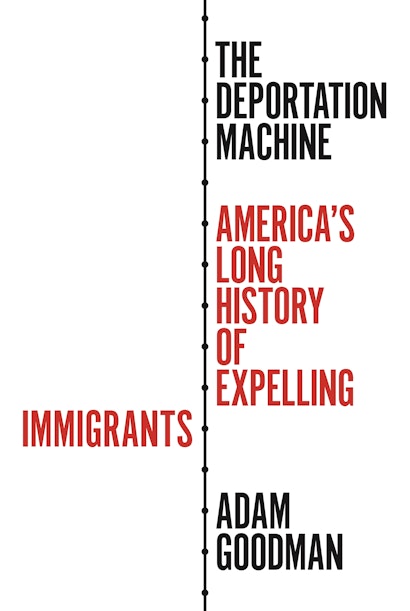The federal response to immigration has shifted under the Biden administration, but executive orders alone cannot undo the historical stigma, violence and exploitation suffered by immigrant communities. What stories, hopes and continued activism should define this political moment? Join us for a conversation about immigration rhetoric, policy enforcement and possibility in the United States.
Angela S. García is a sociologist and assistant professor at the University of Chicago School of Social Service Administration. Her research centers on international migration, law and society, and urban sociology. García’s book, Legal Passing: Navigating Undocumented Life and Local Immigration Law (University of California Press 2019) compares the effects of restrictive and accommodating state and local-level immigration laws on the everyday lives of undocumented Mexican immigrants in the US. Her current book project theorizes time and waiting from the perspective of undocumented immigrants who would have been eligible for Deferred Action for the Parents of Americans (DAPA) and their aging parents left behind in communities of origin across Mexico. She is also developing a collaborative project on Chicago’s municipal ID program. García received her PhD in sociology and her master’s in Latin American studies from the University of California, San Diego.
Adam Goodman teaches in the Department of History and the Latin American and Latino Studies Program at the University of Illinois Chicago. His award-winning book, The Deportation Machine: America’s Long History of Expelling Immigrants (Princeton University Press, 2020), traces the US government’s systematic efforts to terrorize and expel immigrants over the past 140 years. The book chronicles the devastating human costs of deportation and the innovative strategies people have adopted to fight against the machine and redefine belonging in ways that transcend citizenship. Goodman’s writing on migration history and policy has appeared in venues such as the Journal of American History, Washington Post, and The Nation. He is a co-creator of the #ImmigrationSyllabus public history project and a co-organizer of the Borderlands and Latino/a Studies Seminar at the Newberry Library.
Jean Guerrero is an award-winning investigative journalist and author of Hatemonger: Stephen Miller, Donald Trump and the White Nationalist Agenda (HarperCollins). Her first book, Crux: A Cross-Border Memoir (Random House) won a PEN Literary Award. Her writing is featured in Vanity Fair, Politico, The Nation, the New York Times, the Wall Street Journal, Rebecca Solnit’s Best American Essays 2019 and other publications. She is an Emmy-winning border reporter, contributing to NPR and the PBS NewsHour. Months before Trump’s family separations captured national attention, her reporting on the practice was cited in a Congressional inquiry. She started her career at the Wall Street Journal and Dow Jones Newswires as a foreign correspondent in Mexico and Central America. She was named the 2019 “Journalist of the Year” by the San Diego chapter of the Society for Professional Journalists and one of the California Chicano News Media Association’s most influential Latina journalists in the region.
Dr. William D. Lopez is a clinical assistant professor at the University of Michigan School of Public Health. He is the author of the book, Separated: Family and Community in the Aftermath of an Immigration Raid, published by Johns Hopkins University Press.
As a clinical assistant professor, William teaches “Health Impacts of Immigration Law Enforcement in the U.S.” This class focuses on the violence of immigration enforcement on the individual, family, and community levels and asks what we, as researchers and advocates, can do to address it. Themes include militarized immigration raids, ICE and local police collaboration, routinized fear, the stigma of being targeted by ICE, and the links between state violence in Latinx, Arab and Muslim, and Black communities. His current public health research considers 1) the ways in which fear of immigration enforcement impacts health service utilization in mixed-status communities and 2) community responses to large scale immigration work raids. Dr. Lopez also teaches a variety of public health classes, such as Health Program Planning and Health Communication, both residentially and online.
William has been fortunate to collaborate both in his research and advocacy with the Washtenaw Interfaith Coalition for Immigrant Rights and Synod Community Services, which operate the Washtenaw County ID Program.
